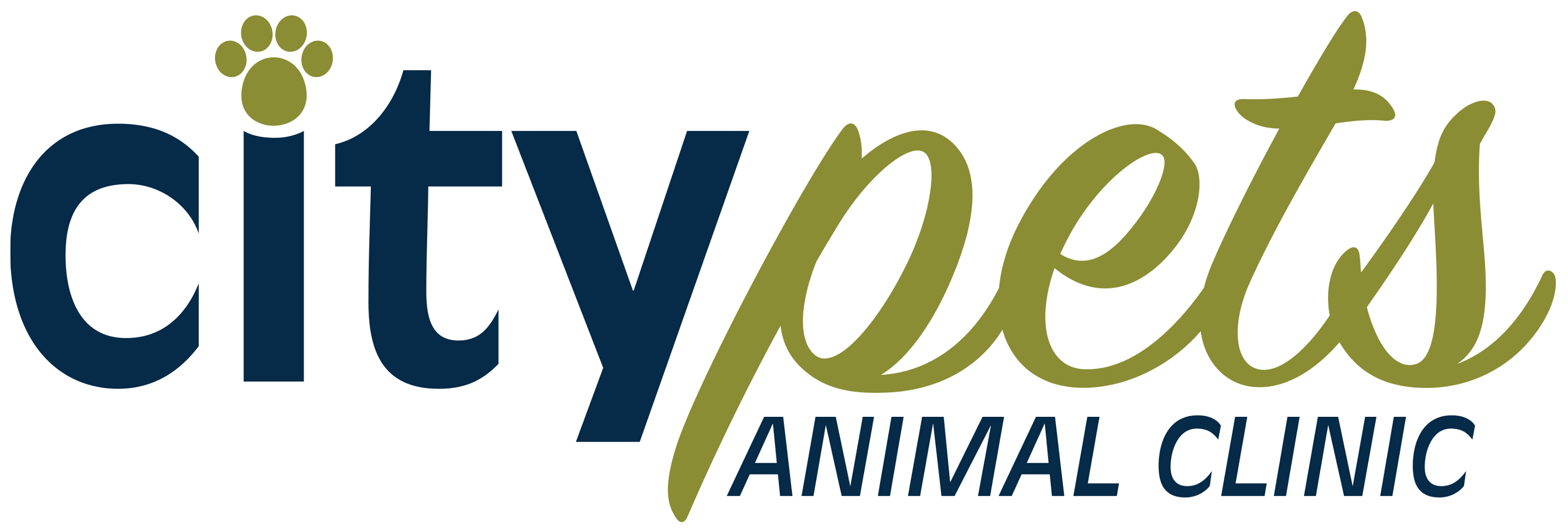Library
-
This handout discusses the pros and cons of feeding a raw food diet to your dog. Topics included are nutritional imbalances, potential bacterial contamination, the risk of foodborne illnesses involving both you and your pet, and other concerns that may arise from feeding a raw food diet.
-
There are many environmentally friendly ways that owners can care for their pets. Waste disposal can involve biodegradable or compostable bags or careful composting. Cat litter can be transitioned to recycled newspaper or sawdust pellets. Any toys, beds, houses and other accessories can be biodegradable and/or recycled such as cotton or rubber. Cats should be kept indoors to reduce their impact on the ecology of their surrounding environment. A nutritionally adequate diet composed of organic food can be provided.
-
An unplanned weight loss of more than 10% of a dog's body weight is considered abnormal. Your veterinarian will take a thorough history and physical exam of your pet, and also perform testing such as bloodwork, urinalysis, and imaging to determine the underlying cause and institute targeted treatment.
-
An abscess usually appears suddenly as a painful swelling that may be firm to the touch or compressible like a water balloon. If the abscess is located inside the body (e.g., in the liver), fever is expected, and if the abscess has ruptured internally, there may also be bacteria in the bloodstream. Treatment depends on the location of the abscess and the severity of the infection.
-
Acepromazine is a sedative/tranquilizer used primarily in cats and dogs as a pre-medication for anesthesia or for chemical restraint. It is given by injection in the clinic or by mouth in the form of a tablet. The most common side effect is low blood pressure. Acepromazine should not be used in conjunction with certain toxicities, or in pets with heart disease or low blood pressure. It should be used cautiously in pets with mild liver or heart disease, clotting problems, or in pregnant, debilitated, or young animals. If a negative reaction occurs, call your veterinary office.
-
Acetazolamide is a diuretic used off label and given by mouth to treat glaucoma or alkalosis. The most common side effect is stomach upset, but other side effects of the central nervous system, blood, kidneys, electrolytes, blood sugar levels, liver, or skin are possible. Do not use this medication in pets with liver or kidney disease, or low sodium or potassium blood levels. Use with caution in pets with acidosis, diabetes, pregnancy or lactation. If a negative reaction occurs, please call your veterinary office.
-
Acetic acid/boric acid topical (brand name Malacetic) is an antibacterial and antifungal medication used to treat skin infections caused by bacteria and/or yeast in cats and dogs. Some formulations may be used to treat ear infections. This medication may be part of a combination product. Acetic acid/boric acid topical comes in shampoo, liquid (spray and dropper), and wipe form.
-
Acetic acid/boric acid otic (brand name Malacetic) is an antibacterial and antifungal medication used as an ear cleanser and drying agent in cats and dogs with ear infection. This medication may be part of a combination product. Acetic acid/boric acid otic comes as a liquid ear cleanser.
-
Acetylcysteine (alternate and brand names: N-acetylcysteine, NAC, ACC, Mucomyst®, Acetadote®, Cetylev®, Parvolex®) is given by mouth, injection, or topically and is used on and off label to treat toxicities or to break up mucus. It is usually a prescription, but some forms may be found over the counter. Give as directed by your veterinarian.
-
Canine acne is an inflammatory disorder of the lips and the skin of the muzzle. Dogs with mild cases of acne often have red bumps or pustules (pimples) on their skin, which can, in more severe cases, lead to generalized swelling of the lips and muzzle, bleeding wounds, or scabs on the face.

